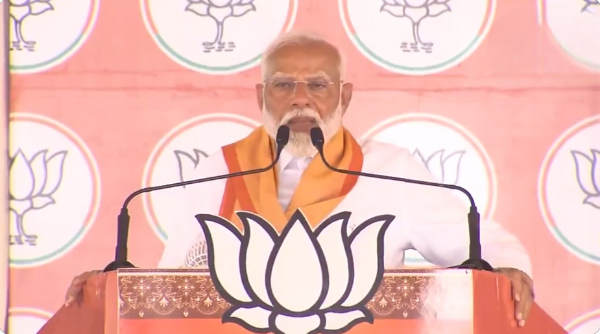Prime Minister Narendra Modi’s recent address in Haryana’s Bhiwani took a contentious turn as he levied serious allegations against the West Bengal government, accusing it of hastily issuing Other Backward Classes (OBC) certificates to Muslims, including infiltrators. Modi’s assertions have reignited debates surrounding the legitimacy and accountability of administrative processes in the state.
During his speech, PM Modi stated, “In West Bengal, they have issued OBC certificates to Muslims overnight and that too to infiltrators. The High Court has invalidated all the OBC certificates issued to Muslims in the last 10-12 years,” sparking immediate reactions and discussions across political circles.
The Prime Minister’s remarks come amid ongoing legal battles over the validity of OBC certificates, particularly those pertaining to the Muslim community, in West Bengal. His allegations have intensified scrutiny on the administrative machinery’s efficiency and integrity, raising concerns about the transparency and fairness of governance practices.
The accusation of indiscriminate issuance of OBC certificates, allegedly even to infiltrators, presents a grave challenge to the state government’s credibility and regulatory mechanisms. It underscores the urgent need for stringent verification procedures and robust oversight to uphold the sanctity and credibility of government-issued documents.
While the West Bengal government is yet to offer a formal response to PM Modi’s allegations, the controversy is expected to dominate political discourse in the lead-up to the state elections. The issue holds significant implications for electoral dynamics and public trust in governance institutions.
PM Modi’s remarks highlight the complex intersection of identity politics, citizenship debates, and administrative accountability in India’s socio-political landscape. The allegations surrounding the issuance of OBC certificates in West Bengal underscore the imperative for comprehensive reforms and heightened vigilance to address the challenges posed by such contentious issues.



